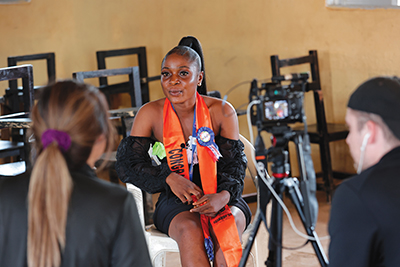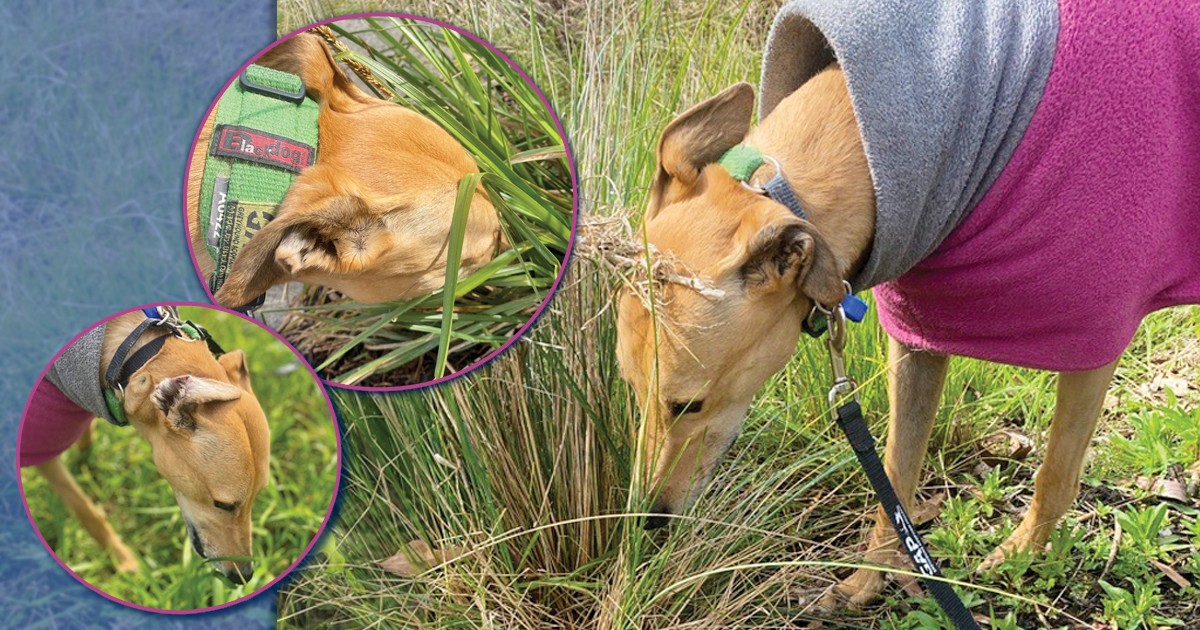(Above) “Thank you for giving me the chance to receive a better education,” says Aaron, a student at John Gowans Junior and Senior High School
As I arrived in Liberia with a team to capture photos, videos and stories for the 2024 Partners in Mission campaign, I was pleasantly surprised to see that a group of Salvation Army personnel from the Liberia, Sierra Leone and Guinea Territory—from Lt-Colonels Luka and Rasoa Khayumbi, the territorial leaders, to the chief secretary, field secretary, development officer and more—had come to welcome us. This was my fifth international trip with The Salvation Army, but my first time being welcomed at the airport in the middle of the night by a group of this size and magnitude.
“Welcome to Liberia, the sweet land of liberty!” said Momo Douwee, the social and medical secretary for the territory (see our interview with Douwee here). Over the next three weeks, I came to realize what he meant. The Salvation Army has made a difference in the region through decades of educational, medical, agricultural, livelihood and spiritual support, and I was lucky enough to meet just a few of the people whose lives have been changed.
Agriculture

and Lt-Col Brenda Murray, director of international development, with produce grown by farmers as part of the SAIL project
Over the past few years, Canadians have been financially supporting the Sustainable Agriculture in Liberia (SAIL) project. Since the project’s inception in 2021, more than 200 farmers have benefited from agriculture training, farming tools and equipment, seed inputs and additional coaching on their plots from trained farmers.
More than 30 farmers gathered at the Mount Barclay Corps to express their gratitude, sharing both the success they’ve had with their crops and their testimonies, and it was clear that there’s been so much growth beyond their farms.
“Farmers were struggling,” said Emmanuel Kimen, project manager for SAIL. “Without this project, they would’ve continued to struggle. SAIL has brought so much relief to them—their income capacity and skills continue to grow.”
One farmer, Marcus, was able to build a home with the funds he saved from his crops. “We are blessed with comfort and salvation,” he told us. “The Salvation Army has taught us a lot.”
Theophilus is now able to pay for his four children’s education. And Diana, the youngest of the farmers, was able to pay for both her and her sister’s education.

who was able to pay for both her and her sister’s education
with the income she received from her garden
Before we left the site, Diana, who had just come from her graduation ceremony and was still dressed in her full graduation attire, rushed to meet us and give The Salvation Army her thanks.
“I learned how to grow a garden,” she explained. “I used the money to go to school for beauty care, and today I graduated!”
Education
When we went to the John Gowans Junior and Senior High School, we were welcomed by the students, teachers and principal, who are grateful for the Army’s support. Canadians have been supporting the school through the Brighter Futures Children’s Sponsorship Program, and we were able to meet the 15 students who are being helped through tuition fees and school essentials.
“Thank you for giving me the chance to receive a better education,” said Aaron, a student at John Gowans. “Education is the key to our success. I love being with the Army and I want to be an Army man!”
Hope
We also found friends of The Salvation Army in places we didn’t expect. As we were checking out of the hotel on our final night in Sierra Leone, we received a highly discounted price for our stay.
“I love and appreciate The Salvation Army,” said the hotel owner.
She told us that The Salvation Army supported her with food and clothing when she sought refuge from the war and that she will never forget the help she received.
Today, she owns the hotel and is thriving. Yet another reminder that hope lives everywhere, and when you wear clothing branded with the Army shield, sometimes you are lucky enough to see it in person.
To Love is to Liberate
In West Africa, the people behind the Army shield care—and they dedicate their entire lives to showing it. This much was clear, and it’s why the territory has grown as much as it has. The Salvation Army was there when the country endured multiple civil wars. They were there when much of West Africa endured the Ebola outbreak. They were there during the COVID-19 pandemic. And they will continue to be there through it all.
While studying international development in my undergraduate program, a professor once told our class, “Love is emancipation.” Those words ring true, especially in the context of the work happening in this territory. There is so much love, compassion and generosity that spills out of the team in Liberia, Sierra Leone and Guinea—and because of that, people in this region have been liberated. I met families who had been liberated from generational poverty, students who had been liberated through education and a people who were helped by The Salvation Army amidst war. The stories I heard and the people I met are only a fraction of the amazing things happening in this territory.
“Communities are alive because of the Army’s support,” said Major Abraham Collins, development secretary for The Salvation Army in Liberia, Sierra Leone and Guinea.
To love is to liberate, and I will always be honoured that I got to see love personified in what is called “the sweet land of liberty.”
Kathy Nguyen was the resource/media co-ordinator in the international development department.
Photos: Mark Yan
This story is from:










Leave a Comment